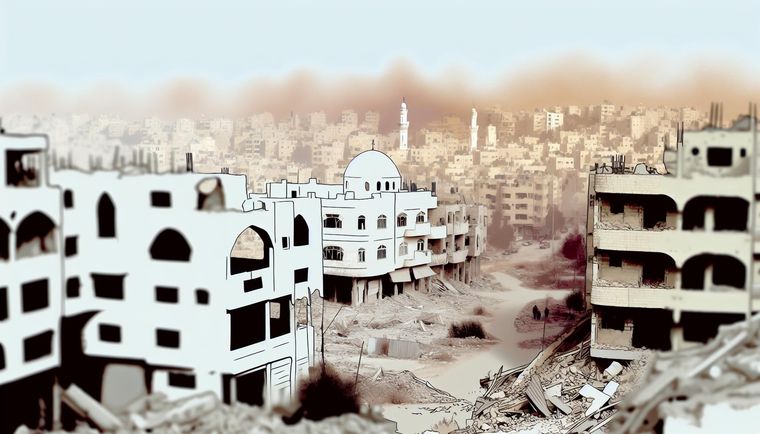A Year of Unrelenting Conflict: The Human Toll of the Israeli-Palestinian War

On October 7, 2023, humanity witnessed a grievous wound inflicted upon mercy and innocence, as death and terror became the order of the day along the borders of Gaza and Israel. This date marks the beginning of a sustained conflict that has escalated into a year-long war with devastating ramifications for both societies. On that fateful morning, while many in Israel celebrated Simchat Torah—a significant holiday—their world was turned upside down by an unprecedented attack from Hamas, which crossed the border with brutal intent.
The events of that day were catastrophic, with over 1,200 Israelis killed, marking it as the deadliest day for the Jewish nation since the Holocaust. The attacks came from three fronts: Israeli military bases, urban areas, and even the Nova electronic music festival, where militants caused untold carnage. In response, Israel launched Operation Iron Swords, targeting Gaza, which then became known as the world's largest open-air prison, further compounded by a decade-long siege.
A year later, the situation has only deteriorated. The ongoing conflict has not just been a battle for dominance over territories but has also seen the tragic erosion of civilian life, with staggering death tolls reported on both sides. According to the health ministry in Gaza, Israeli attacks have claimed approximately 41,680 lives, a grim figure that includes women and children, alongside an estimated 96,350 wounded individuals. Furthermore, many bodies remain unrecovered under the rubble of collapsed buildings.
In addition to the deaths, Gaza now faces critical shortages in healthcare, clean water, and food. The United Nations has warned of a humanitarian disaster as hospitals struggle to operate, with only 17 of 36 hospitals still partially functioning due to continuous bombardment. Reports show that 1 million cases of various ailments have been recorded, exacerbated by the lack of sanitation facilities and medicine shortages. The dire living conditions have also resulted in the resurgence of diseases that were once under control.
On the Israeli side, the emotional and societal impact of the war has left a profound mark. The ongoing experience of trauma and loss has become part of the national consciousness as families continue to fight for the return of their loved ones taken hostage by Hamas. A temporary truce allowed for the exchange of some hostages, but many family members remain unaccounted for, a situation that has led to continued protests and calls for government action.
The Israeli government, led by Prime Minister Benjamin Netanyahu, finds itself caught in a conundrum. Criticized for intelligence failures leading up to October 7, Netanyahu’s administration has faced immense pressure to ensure both military success and the safe return of hostages. However, despite declaring a commitment to destroy Hamas, the conflict persists, and the longer it drags on, the more complicated the socio-political landscape becomes.
Iran and militant groups from Lebanon and elsewhere have joined the fray, signaling a wider regional conflict that raises concerns over the stability of the Middle East. The nearly 140 settler attacks in the West Bank since the onset of the war, coupled with the ongoing violence, point to a cycle of retaliation that seems entrenched.
The international community's response has been tepid, with many countries observing from the sidelines. Criticism has been levied against both Israel for its military tactics and Hamas for its grip on Gaza. Yet, the widespread suffering of civilians on both sides calls for a renewed diplomatic effort to address underlying grievances.
As we mark a year since the onset of this brutal conflict, the world watches a humanitarian crisis unfold in Gaza, alongside a society in Israel grappling with loss and fear. The call for peace and negotiation has grown louder among civilians who seek an end to the violence and a path towards healing—a hope that remains elusive.
In the end, a year of war has not brought about resolution, but instead prolonged suffering and despair. Without compassion, the cycle of hostility continues, underscoring the urgent need for a concerted international effort to transcend the bloodshed, pursuing not just temporary ceasefires but lasting solutions to the deep-rooted issues plaguing both communities.
Related Sources:
